The Bug Picture has entered into a partnership with RWACOF, Rwanda’s largest green coffee exporter (a member of the Sucafina Group) and COPED, one of Rwanda’s largest municipal waste managers. Now, in a first-of-its-kind project for Rwanda, The Bug Picture is looking to take coffee waste and mix it with the trusty black soldier fly larvae, as well as other organic waste supplied by COPED, to create protein for animal feed and biofertiliser, which can be difficult to find in Rwanda.
The partners in Rwanda have built a facility in Bishenyi, on the outskirts of Kigali, at one of COPED’s landfill sites. Here, they will bioprocess 1.5 tonnes of organic waste per day by June 2021. Using vertical farming in the 320 m2 facility, they will produce three tonnes of dried insect meal and 11 tonnes of frass, the biofertiliser, on a monthly basis.
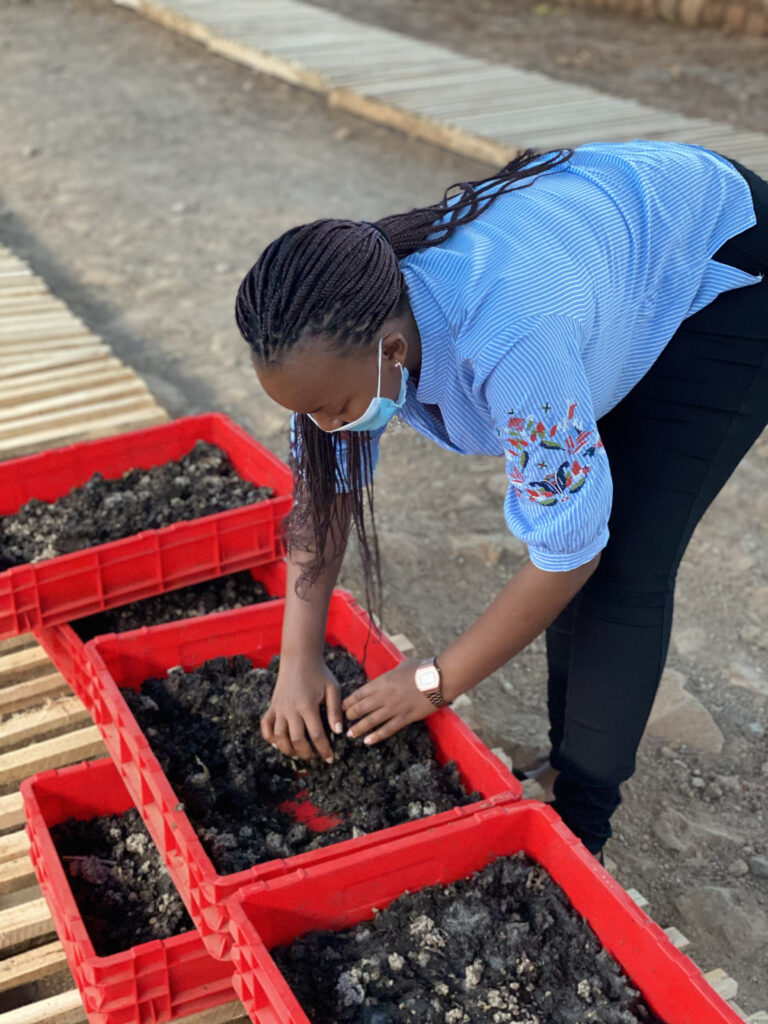
Laura Stanford, Founder and CEO of The Bug Picture, is excited about proving this commercial pilot and scaling this solution, saying, “The demand for locally produced, sustainable protein is overwhelming.” Rwanda imports 35,000 tonnes of soy into the country on an annual basis for inclusion in animal feed. This soy is expensive (nearly double the price in Kenya), inconsistent and sometimes completely unavailable. The impacts of this runs through the full livestock supply chain and threatens Rwanda’s ability to feed the current and future population on its own.
RWACOF produces about 6000 tonnes of coffee pulp waste a year. The coffee pulp waste is normally composted in large pits, before being distributed to farmers for application on their farms. However, Rwandan soils can be extremely poor in nutrients, an issue that low quality composted cherry pulp alone can’t address. ”We see a project that can address numerous complex challenges, namely the low organic matter and NPK content in soils, low yields, coffee CO2 emissions and most importantly a lack of affordable high-quality organic fertiliser to coffee growers,” explains Maximillian Veglio, RWACOF’s Managing Director.
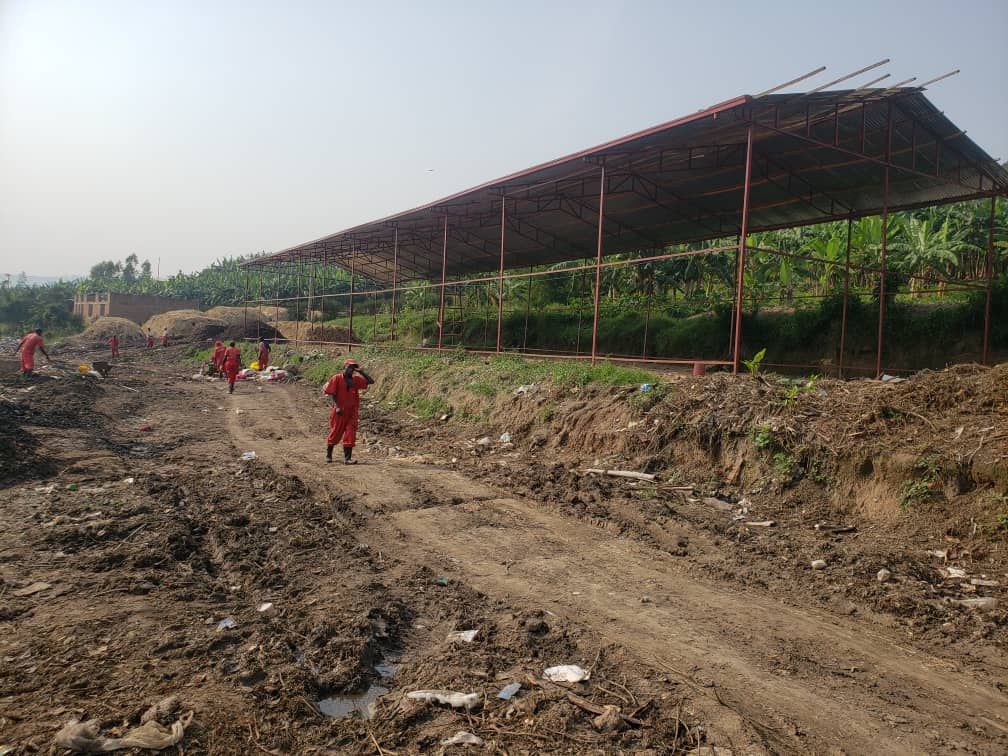
Construction of the new facility at COPED 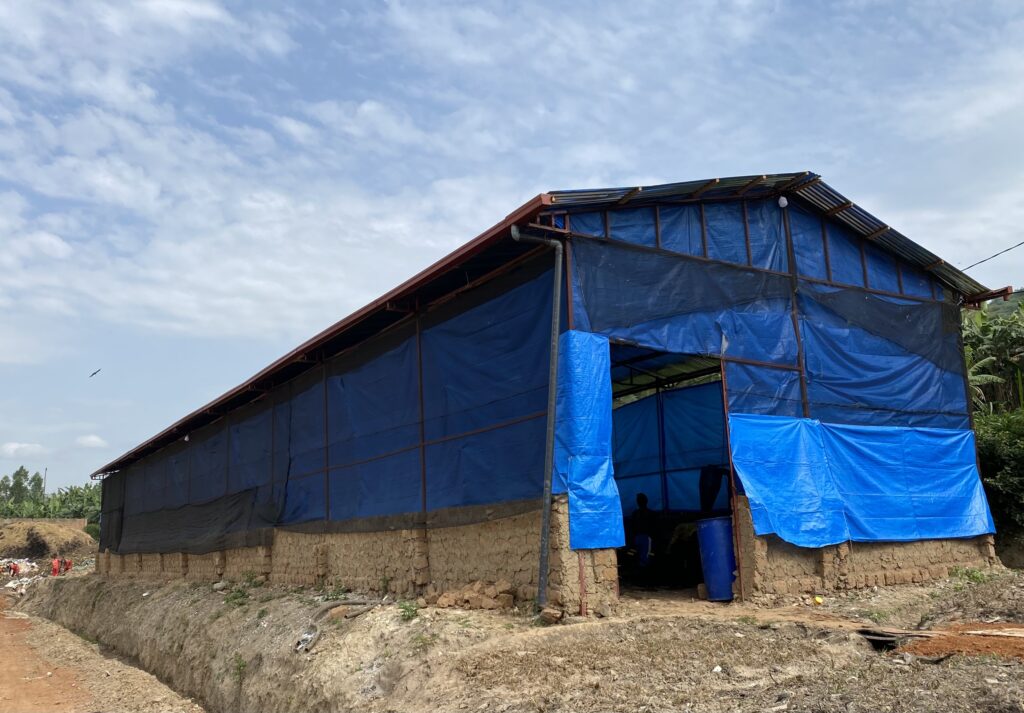
Facility in Bishenyi ready for processing
The biofertiliser, known as frass, will be distributed back to the 20,000 smallholder farmers in RWACOF’s network of coffee farmers. This will improve the soil health of the coffee trees, increasing yield and quality of coffee beans in seasons to come, thereby directly benefiting the smallholder farmers.
“Through this project, our clients (waste generators) have been trained in sorting organic from inorganic waste at the source for the first time,” said Paulin Buregeya, CEO of the COPED Group. “Our landfill will last longer, while GHG emission will be reduced due to this conversion of organic waste into animal feed through black soldier fly larvae technology.”
The project’s environmental impact is significant. Veglio adds that, “It can reduce methane emissions of decomposing cherry pulp, thus reducing CO2 emissions, and turn this into a high-quality fertiliser and protein flour for local animal feed usage.”
The project aims to prove the efficacy of using black soldier fly larvae to process a combination of coffee waste and organic waste diverted from the landfill, creating a proudly Rwandan protein source for animal feed, and contributing to the health of soils.
That’s a circular economy if I ever saw one.
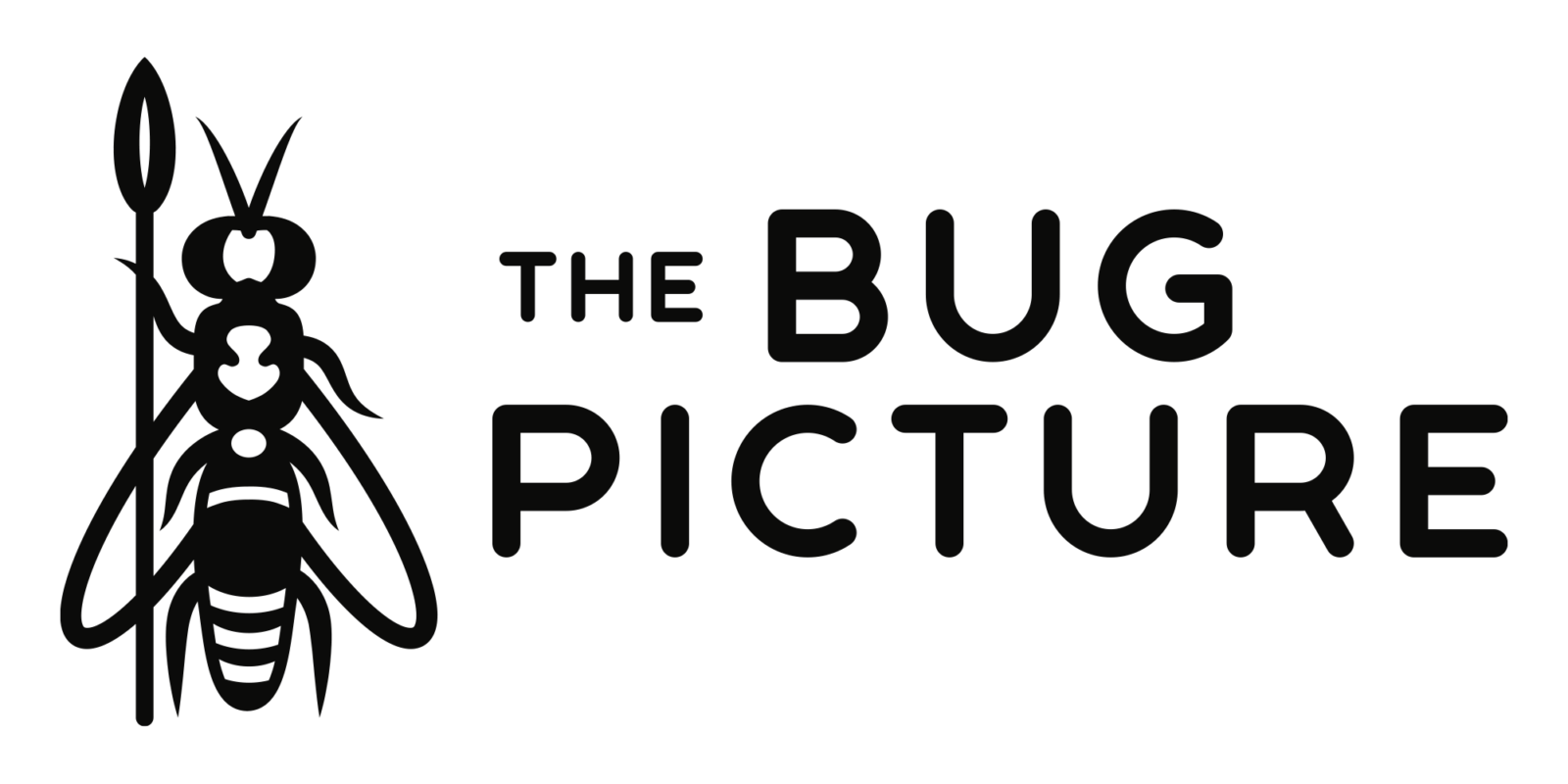
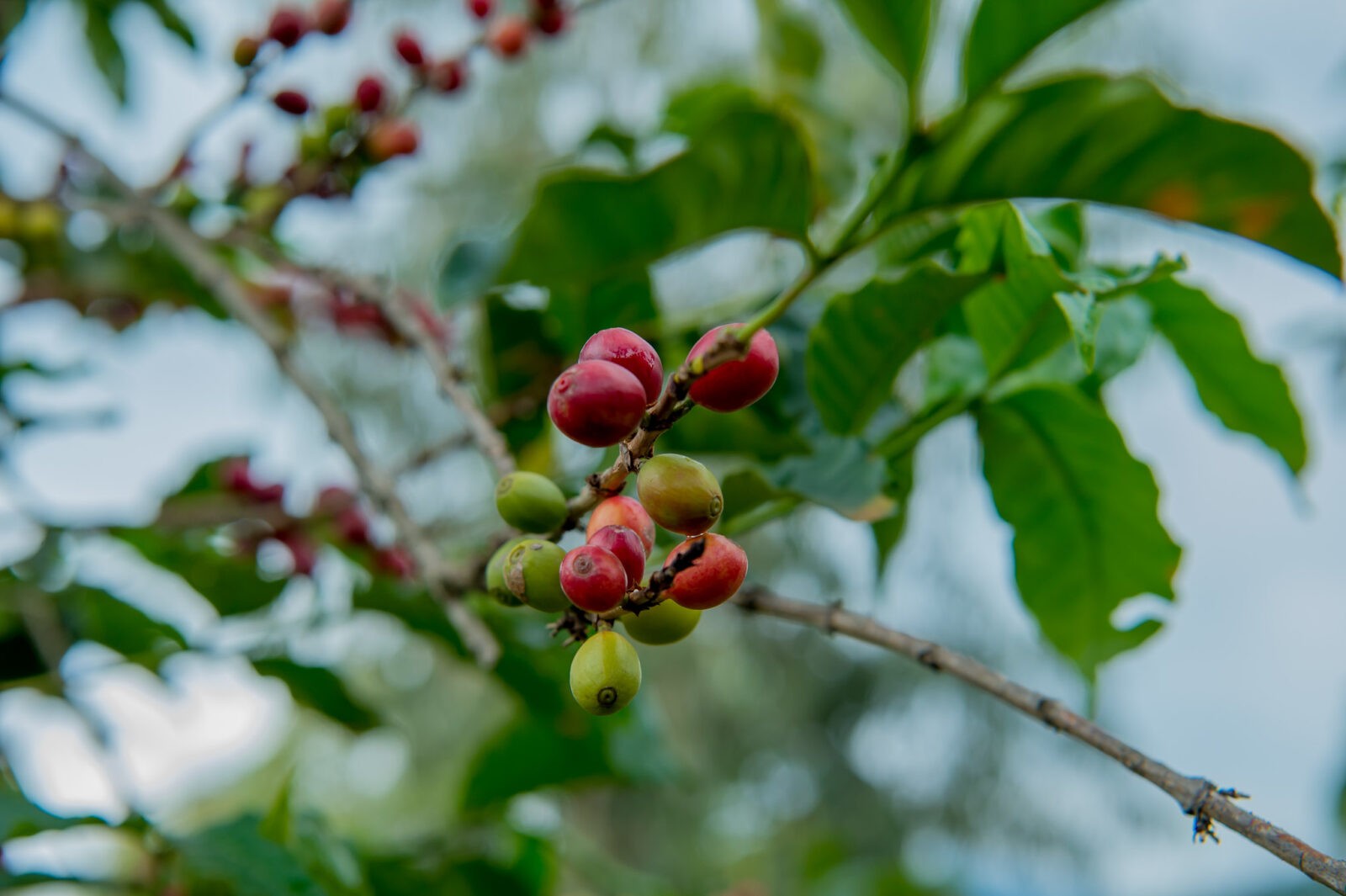
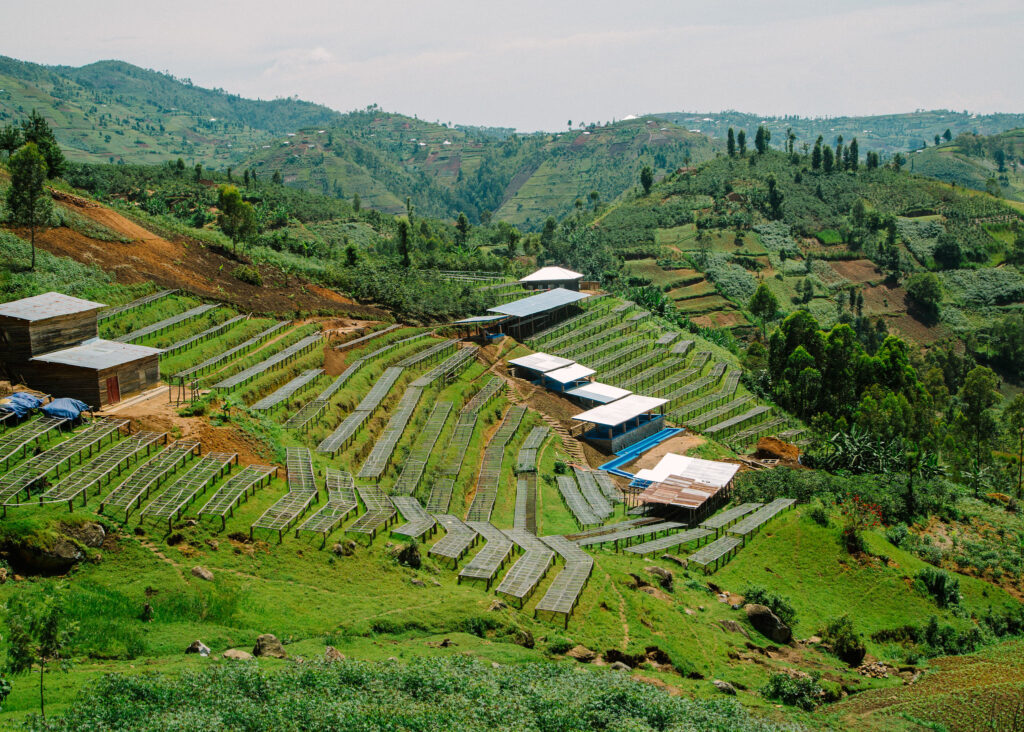
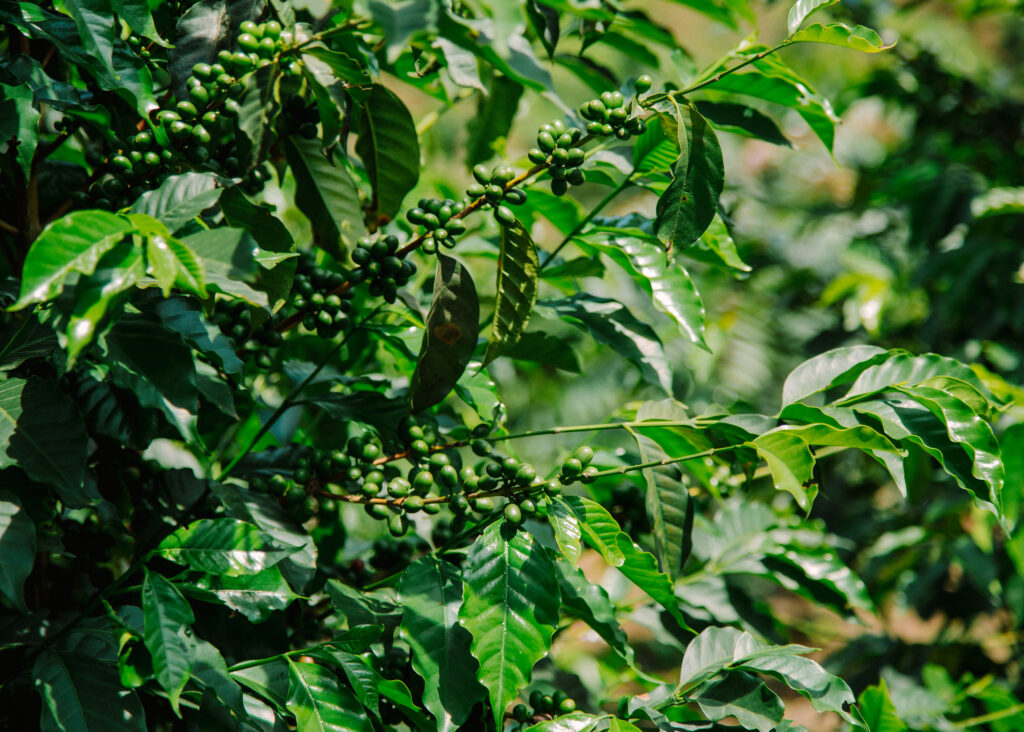
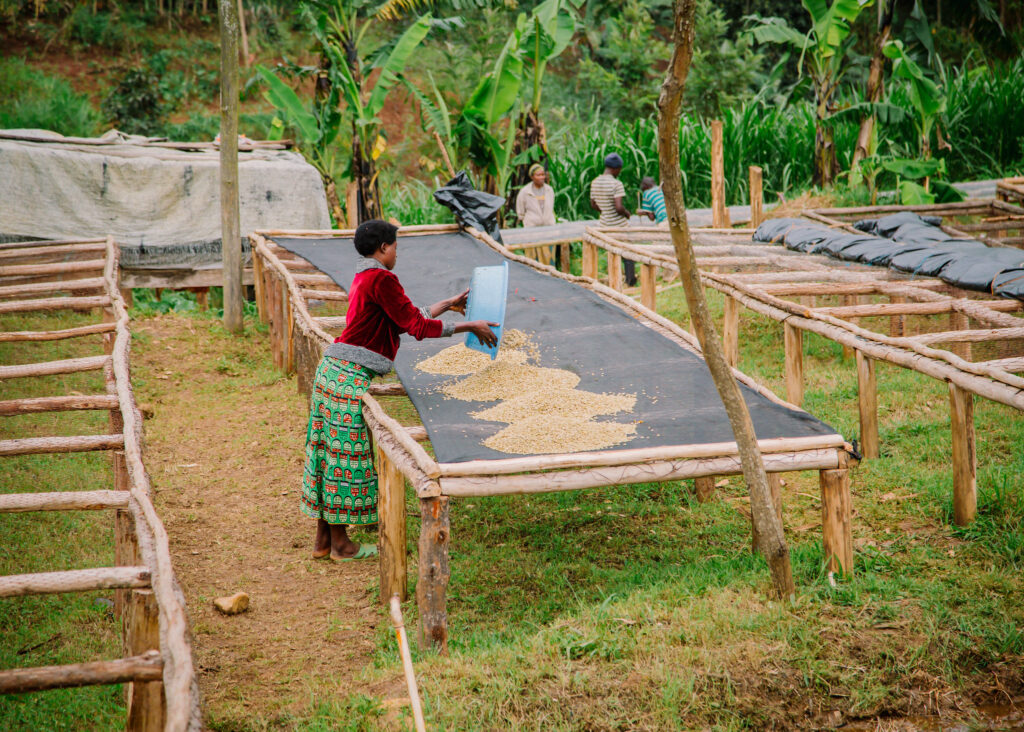
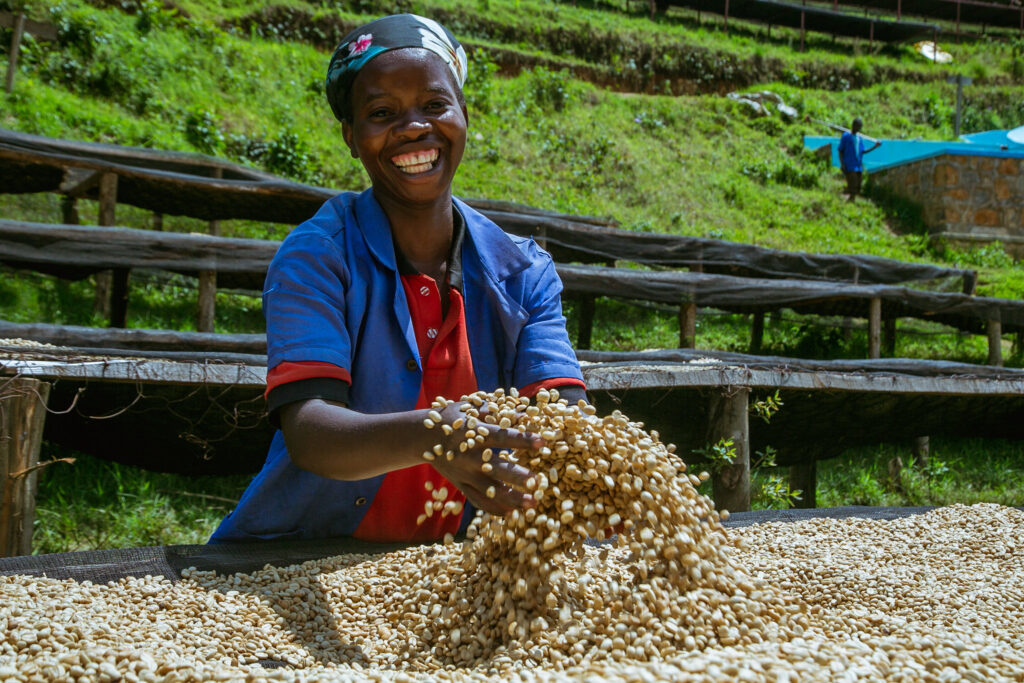
One Comment